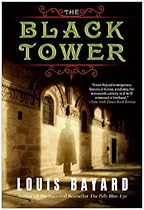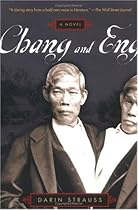I've seen this book reviewed on a few book blogs and was struck by the title and the cover that doesn't seem to fit the title. It's about a woman in England during WWII and how her life must go on inspite of the war being fought. Although the war plays a role throughout the novel, it's not exactly a war novel. It's more like Little Women - you know the war's going and it clearly affects the characters and story, and yet it's in the background. And I think that's how many of our modern wars are. They affect us, but mostly in the background, unless you or a close loved one is in the military. And that's what a lot of the book is about. Life must go on, even during war. You have to keep living your life, even though it's hard because you know others are out there fighting for you.
It's also about how the little things in life make a difference. La starts an orchestra to keep the local military and townspeople occupied and give them a bright spot to look forward to, and something beautiful in the midst of something ugly. Does her orchestra really save the world? No, but does it improve the lives of those involved? Absolutely.
It made me think of last year at work, when we went through layoffs. Seeing your friends laid off is terrible, and not being sure if you'll be next makes it even worse. You feel like you can't control anything, especially when the people you see losing their jobs are smart, hard working, wonderful people. We also had many projects cut or put on hold during that time, and everyone started doubting if they were making any kind of difference and wondering what the point of working hard is. I created a silly little sign for my office that simply said: Today is a good day if I helped a coworker and I helped something in the field. That's it. Look at the small things. Did I make a coworker's day better by asking her about something going on in her life or offering to help with something? Did I make someone laugh, or answer someone's question? Then I made a difference. It was a small thing, but that got me through that time and kept me from dwelling on all the things I couldn't change.
I also felt that McCall Smith does an excellent job writing with a woman as the main character. I completely identified with her, and she seemed really real to me. I think that can be hard to do period, so I'm always extra impressed when someone can write so strongly about the opposite sex.
Finally, I loved the relationships in the book. It tells a story about how someone can effect your life and be part of a powerful romantic relationship without ever actually dating/kissing/making love. I know I have someone like that in my past, and in so many ways he is so much more important that most of my actual ex-boyfriends or random guys I kissed. And yet we never went on a date and actually only saw each other in person a handful of times. We met at a camp when we were 15 and had this weird instant connection. I lived in a suburb of OKC, he lived in a suburb of Tulsa. We actually managed to stay in touch, surprising in the days before free long distance and high-speed internet. He sent me roses on my sixteenth birthday, we saw each other the next two years at camp, and he came to see me once. And yet I was closer to him than I was to boyfriends I saw every day. Maybe it's because the other stuff wasn't there to get in the way and we actually had to talk. But this book reminded me of that, and I enjoyed reading a love story that felt more real to me than most fictional love stories. It also admitted the importance of relationships that are hard to define.
Oh, one more thing! This book made me want to go live in the English countryside. I already wanted to live in a cottage in England, but this book just added fuel to the fire. McCall Smith did a great job describing Suffolk and made me want to live there. I also thought it was interesting that he talked about how many of the people who live there have never been to London. How can you live in England and not have been to London? That seems crazy to me, but of course it's true that many of the country folk have probably never gone, especially back in the 30s and 40s.
I'm glad it McCall Smith has a fairly long list of other books, so I will definitely be checking those out soon!



